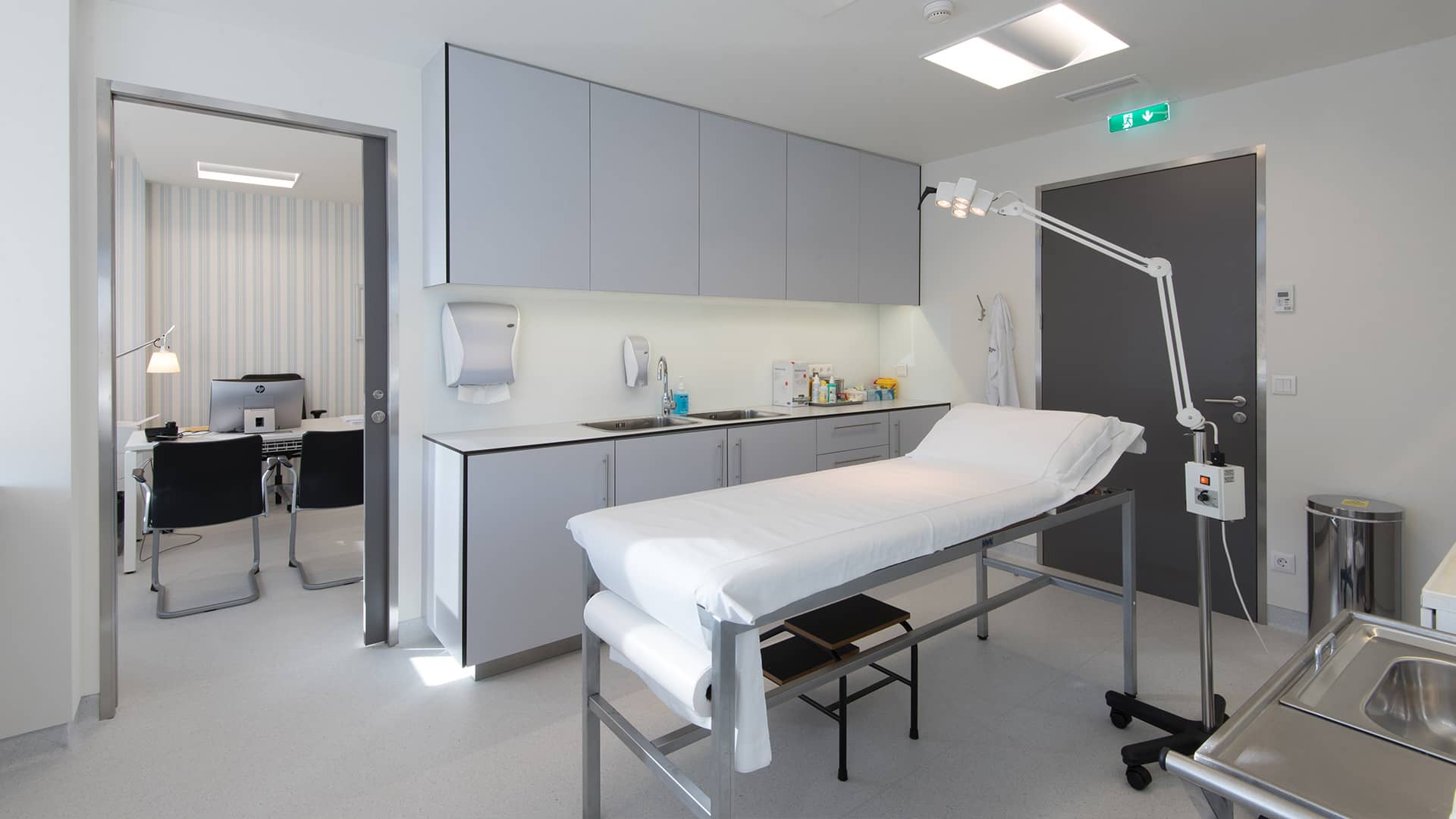HPV screening allows for the identification of cervical lesions with the potential to progress into cancer. Discover what it is, how screening is conducted, and why it is important.
In Portugal, estimates indicate that the prevalence of HPV infection in young women who have already started sexual activity ranges from 40% to 80%, with a lifetime probability of infection being 80% to 90%. Once acquired, there are two possible scenarios: the infection can resolve spontaneously without clinical symptoms, or it can persist for up to 2 years, during which the risk of developing cervical cancer is significantly high. Therefore, HPV screening is of utmost importance in detecting the virus as early as possible and saving lives. Learn more about what this screening entails and how it is performed.
What is HPV?
HPV stands for Human Papillomavirus, which is one of the most common sexually transmitted infections worldwide. This virus infects the skin and mucous membranes, potentially causing warts or lesions in the mouth, throat, genital and urinary tract, anal region, as well as the hands and feet. It is easily transmitted through physical human contact, primarily through sexual activities such as vaginal, anal, oral, or masturbatory contact, without the need for associated high-risk behaviors.
There are more than 120 types of HPV, categorized into low-risk and high-risk groups. Viruses in the low-risk group are typically naturally eliminated by the immune system. In most cases, they do not present any symptoms, which means infected individuals can produce and transmit the virus without being aware of it. Viruses in the high-risk group have the potential to cause severe lesions and diseases. HPV is responsible for cervical, anal, vaginal, penile, and vulvar cancers, as well as the vast majority of genital warts.
HPV symptoms: What are the most common ones?
While the majority of HPV infections are asymptomatic, the disease can, in some cases, present certain signs, especially in individuals with weakened immune systems. Symptoms can appear between 6 months and 2 years after the infection has occurred.
The main symptom of HPV infection is the presence of warts, which may not be visible due to their small size or location in internal parts of the body. For example, lesions in the vagina and cervix can only be detected through medical examinations.
Warts can be single or multiple, painful, or itchy. When they occur on the face, the patient may also experience hoarseness, voice changes, and even difficulty breathing, although this is less common.
What is HPV screening?
HPV screening is a medical examination that aims to detect the presence of the HPV virus in the human body. It helps identify high-risk cases, particularly in relation to cervical cancer, enabling the identification and treatment of lesions. In Portugal, medical recommendations suggest that HPV screening should be performed at the age of 25 or 3 years after initiating sexual activity. If a woman has no history of cervical disease, HPV screening should be repeated every 5 years and can be discontinued between the ages of 65 and 70.
How is HPV screening or testing done?
HPV screening or testing is a simple and painless procedure for most women, although some may find it uncomfortable. During a gynecological examination, the doctor collects a sample of cells from the cervix using a speculum. The sample is then analyzed in a laboratory to detect the presence of atypical cells.
When the result is positive, there may be a risk of progression to cancer without proper monitoring or treatment. The gynecologist will evaluate the clinical situation and, based on the detected changes, propose a treatment plan. It may be necessary to repeat the test or perform other complementary examinations, such as colposcopy or biopsy. When the result is negative, the presence of dysplasia is ruled out, and the frequency of screening may be extended.
Questions and answers about HPV screening
Here are answers to some of the most frequently asked questions regarding HPV screening.
What precautions should be taken before undergoing HPV screening?
HPV screening should not be done during the menstrual period. Additionally, in the 48 hours leading up to the screening, it is advised to avoid using spermicides, condoms, diaphragms, lubricating gels, among other things, as they can interfere with the screening results.
Does HPV only cause diseases in women?
No, HPV can cause diseases in both women and men. Approximately 75% to 80% of sexually active individuals come into contact with the virus, so the risk of infection is high, even without high-risk behaviors.
Does HPV only transmit through sexual intercourse with penetration?
No, HPV can transmit through any type of genital contact, including oral sex. Additionally, condoms do not provide complete protection as they do not cover the entire genital area.
Is there a cure for HPV?
Currently, there is no way to completely eradicate HPV infection. However, there are treatments available for diseases caused by the virus, prescribed by a healthcare professional.
What can I do to prevent HPV infection?
HPV screening is one of the most effective ways to combat the virus as it enables early detection of a possible infection. Additionally, it is important to receive the HPV vaccine, recommended in the National Health Plan for girls and boys starting from the age of 10. This vaccine provides protection against more than 90% of cervical cancers. In addition to vaccination and screening, you can reduce the risk of HPV infection by limiting the number of sexual partners and using condoms.
If I am vaccinated, do I still need to undergo HPV screening?
Yes, it is important to continue with HPV screening even if you have been vaccinated.
If I have already been infected, can I still receive the vaccine?
Yes, you should still receive the vaccine to prevent reinfection or reactivation of the infection.
Joaquim Chaves Saúde in HPV screening
There are over 250 techniques and commercial kits available in the market for HPV screening, but only two are approved by the Food and Drug Administration (FDA) for exclusive detection of Human Papillomavirus in cervical cancer screening. Joaquim Chaves Saúde Laboratories provide one of these clinically validated techniques: the HPV Cobas 8800 test by Roche, for screening and complete genotyping.
This screening technique is included in multiple international guidelines and produces results within a maximum of one week. Schedule a Gynecology appointment to address all your doubts and benefit from a specialized and experienced multidisciplinary team. Gynecology consultations are available at the Moscavide Clinic, Carcavelos Surgical Clinic, Cascais Clinic, Entrecampos Clinic, Miraflores Clinic, and Sintra Clinic. Don't postpone your health any longer and book your consultation.





